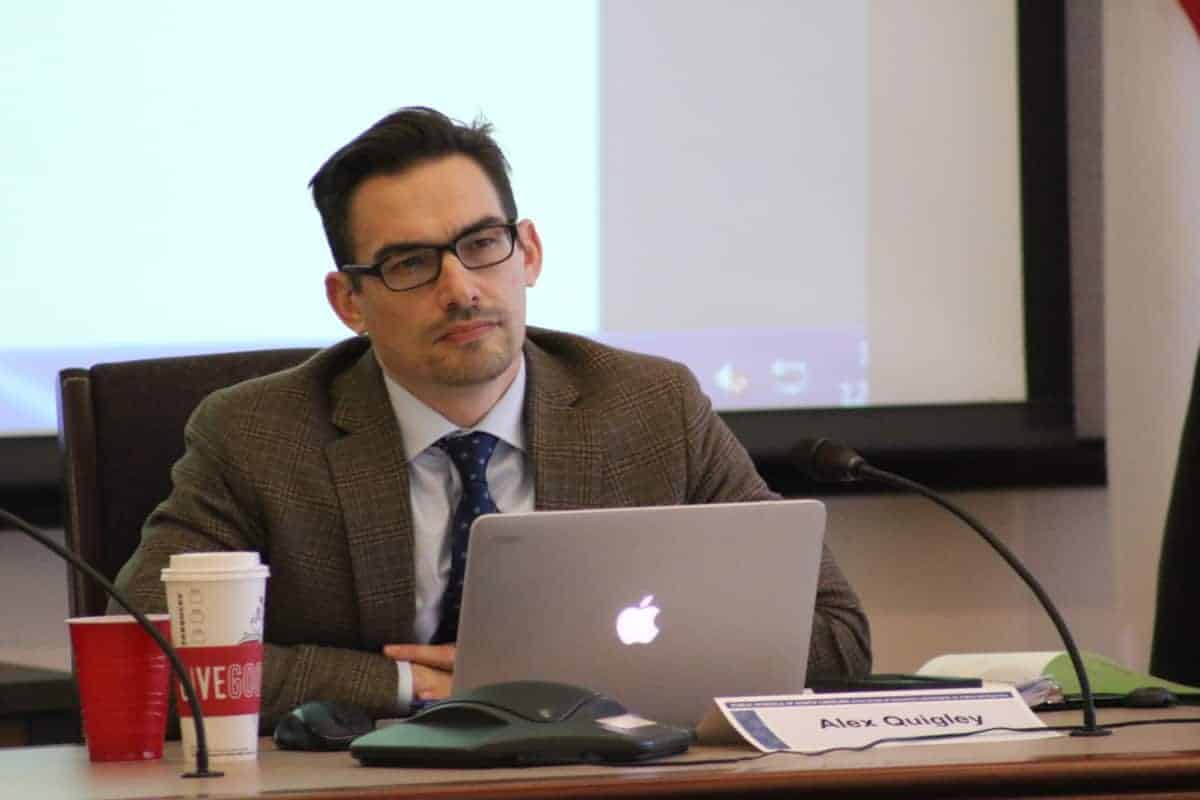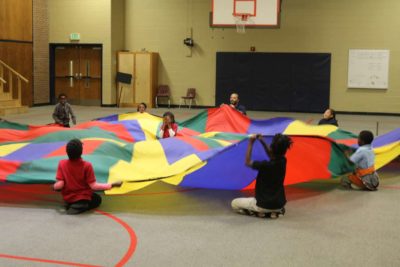On Monday, the Charter School Advisory Board (CSAB) gave four schools of the six schools under review a “ready to open” status, recommending the State Board of Education approve their plans. Two of those schools will open in 2018, on an accelerated track, if approved by the state board in January.
Two schools were trying to change from a private to a charter school. One succeeded: Mountain Island Day School in Mecklenburg County, and one failed: Hobgood Academy Charter School in Halifax County.
Achievement Charter Academy in Harnett County, which includes a daycare and small private school, did not meet the technical requirements for conversion but was similarly already existing as a tuition-based school. It also failed to gain the board’s approval.
Board chair Alex Quigley expressed concerns that these conversions were straying from the point of charter schools, saying he wanted to make sure the schools were innovative and offering something unique to their students.
“I don’t want private schools to feel like this is a way out the back door — to become a charter school,” Quigley said. “I think there’s another level and layer of scrutiny that should be applied.”
Throughout discussions, CSAB members stressed the importance of data-based enrollment projections, free transportation and school lunch, fiscal soundness, community involvement and awareness, board members’ experience, and specific, strong goals.
Achievement Charter Academy
The board did not recommend Achievement Charter Academy in Harnett County to move forward to the state board. With only 23 students at its current K-10 school in Fuquay Varina, school leaders wished to expand enrollment drastically to offer their services to K-8 students who could not afford private tuition. Achievement board members said they wanted to fill a demand from “explosive growth” of military families coming to Fort Bragg. The school also runs a daycare that serves around 45 children a day and would have either been shut down or moved to another location if the switch to a charter happened.
Members found gaps in nearly every part of the school’s application. Parent surveys were five years old, dating back to the initial charter application. The school has not applied for a 501(c)3 status in the five years since its original application. The “quality school model,” which stresses collaboration between parents, teachers, and students, would be hard, CSAB member Lindalyn Kakedelis warned, to apply to middle school students. The school’s proficiency goals were not clear.
Immediately having enough students as a K-8 school concerned multiple members as well. Even if the students are there, members said it is hard to be successful on standardized tests in higher grades right away.
“That’s nine grade levels,” CSAB member Sherry Reeves said. “That is a lot of variance in objectives, your standard course of study. If you want to spread yourself thin, that’s the way to do it.”
CSAB members said they did not feel the decisions made in the application were based off the level of needed research or thought.
“Come back with a strong application, because the thing we want more than anything is for a very successful school to open in Harnett County,” CSAB member Joseph Maimone said. “… [W]e’d feel remiss if we said, ‘Yeah, go ahead, and all these pieces were loose and you weren’t successful in opening.'”
Movement School East
Movement School East in Mecklenburg County was given CSAB approval to replicate the model of Charlotte’s Sugar Creek Charter School, directed by CSAB member Cheryl Turner. The Movement School East board opened the doors of Movement School West this year, which operates on the same model and is located eight miles away from the new school.
Casey Crawford, a founding member of the school board and former Carolina Panthers football player, is the chairman of the Movement Foundation, a Charlotte nonprofit organization providing services to disadvantaged communities. The foundation owns the facility for Movement School West and will provide funding to Movement School East. It operates off funds from Movement Mortgage, a nationwide mortgage bank. The organization’s unique structure, CSAB members said, puts them in a financially stable position most new schools do not enjoy.
The community the school hopes to serve is one of the fastest growing areas in Charlotte. Movement School East leaders hope to employ bilingual teachers and teacher assistants to serve an international population. They said they hope to use local caterers to provide school lunch and a local bus company for transportation. One challenge, said Movement Foundation director Tim Hurley, is the lack of a pipeline from a different school like Sugar Creek, which provided Movement School West with strong leadership off the bat.
“We’re not going to receive the benefit of having this sort of pre-made principal and pre-made lead teachers,” Hurley said. “And that for me makes me think a lot on the importance of just strong talent recruitment. And that’s what I spent the last decade doing.”
Hobgood Academy Charter School
The board did not move Hobgood Academy Charter School’s application forward. The private school was requesting a conversion to a charter and hoping to double its population to 242 students, across kindergarten to 12th grade, in its first year. CSAB members were cautious about that growth and the immediate inclusion of high school seniors because some of them might not be on track for graduation upon arrival with only a year in the school. Leaders mentioned a need in the community and provided anecdotes instead of hard survey data.
“I want to see some concrete evidence that you’ve got 240 students ready to apply,” Maimone said.
The private school, board members shared, will close without the charter conversion for financial reasons. The school also lacked a solid plan for school lunch budgeting. Charter school leaders said they would solicit funds from wherever they needed to, and that three faith-based organizations had committed to funding the program.
CSAB board members were also concerned about $990,000 of debt that the school had borrowed to stay open. Board member Steven Walker said he wanted to make sure that money would not be paid off using taxpayer dollars once the school became a public institution. Member Cheryl Turner said she did not see a problem with the school’s model but thought the school lacked understanding on the level of accountability to which public schools are held.
“Where I see a problem… is them not fully understanding what it means to be a public school and therefore what we see in the application doesn’t meet the kind of level of information you have to have if you’re going to be a public school,” Turner said.
Mountain Island Day School
Mountain Island Day School, a Christian private school in Charlotte, was approved on a fast track to open as a charter school in 2018 if approved by the state board.
Of the current 252 students, the school’s leader said 226 are committed to returning to the charter school, with daily calls being made to the office of outside families wanting to attend.
The board was hesitant that the projected enrollment numbers could be met in such a short time frame, but was comforted by the school’s exclusion of high school seniors to start. Mountain Island Day School board leaders said current high school seniors would continue to pay tuition since it would be especially difficult to bring outside 12th graders in for one year and ensure graduation readiness.
“It gives us two years with students before they graduate,” school board member Tammy Winstead said.
Concerns were raised with the school’s technique. Upon opening, the charter school will maintain a small school environment with a focus on college preparation and dual enrollment in college credits. Winstead said students coming into eighth grade should be at the Math 1 level in order to keep up with the school’s program. CSAB member Cheryl Turner wanted to ensure students’ math abilities would not keep certain students out of the school.
Turner added an amendment to the board’s motion to approve the school’s application about the math provision, which the board passed unanimously. Turner mentioned that other charter schools have specific academic requirements for entry, which have created “exclusive” environments.
“My concern is that approving another charter with that kind of stipulation is creating another exclusive school that I’m not comfortable with,” she said.
Apprentice Academy High School of NC
Despite some financial concerns, the board approved Apprentice Academy High School of NC in Union County for an accelerated opening in 2018. The school is trade-focused and will partner with its local community college for equipment and programming support.
CSAB member Lynn Kroeger reminded the school that 1:1 devices for students, appropriate technology for teachers, along with the kinds of equipment needed for programs like welding are very expensive.
“I think it’s a great idea as a high school track,” Kroeger said. “I’m just not sure there’s enough money allocated in the budget for some of these things.”
Apprentice Academy future principal Barry Ross, a former principal in the Union County Public School system, said students who want to specialize in a trade in the county have limited options that are spread out throughout the district.
“There’s no school in Union County that offers what we have, which is all under one roof … whatever trade you want, we’ll be able to offer that,” Ross said.
The school will be using a summit learning program — the same model used at Research Triangle High School. A future Apprentice Academy teacher said it focuses on individualized needs and blended learning. Ninth and 10th grade will be focused on career exploration, where the higher grades will offer three different pathways: construction (including automotive service), services (like culinary arts and cosmetology), and computer science/IT.
Steele Creek Preparatory Academy
The advisory board gave its stamp of approval to Steele Creek Preparatory Academy, located in Mecklenburg County, to open in 2019. Charter Schools USA, an education management organization with seven charter schools across the state, is behind the charter school. Steele Creek is attempting to replicate the model used at Cardinal Charter Academy in Cary, another Charter Schools USA school.
This project is less ambitious than Charter Schools USA’s other schools in the state, starting with K-6 and expanding to K-8, with a maximum of 765 students. Charter Schools USA Chief Impact Officer Richard Page said most of their other schools have more than 1,100 students once they reach full capacity. He said this is because of past challenges with meeting enrollment and the company’s management capacity.
“This is a very intentional, new design that we worked really hard to crate to ensure that the schools are more manageable, have less risk in terms of that capacity issue and can serve more communities that way,” Page said. “So we’ve been real thoughtful about trying to deliver smaller schools and this is the first one that we’re proposing here.”
CSAB members Sherry Reeves and Cheryl Turner had questions about transportation, noting Charter Schools USA does not provide transportation but a high-needs population will need it. Steele Creek Preparatory Academy leaders assured the board they will increase their transportation budget based on enrolled students’ needs.
The school leaders focused on their marketing plan and population growth with large development plans starting soon for the Steele Creek area.



